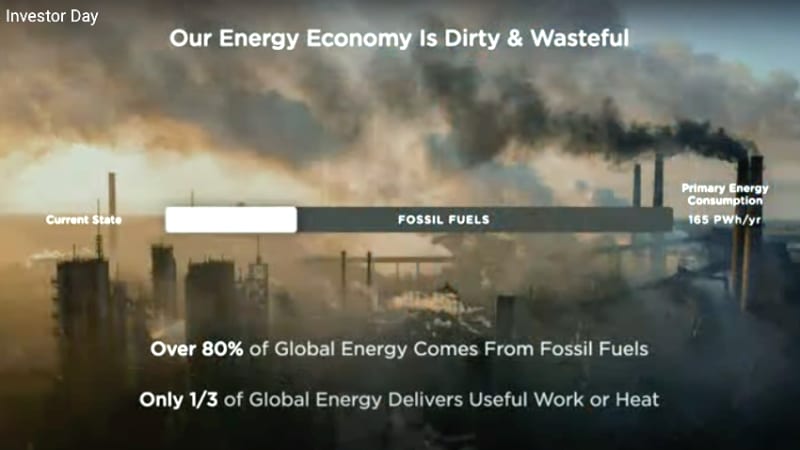[ad_1]

Elon Musk said the next phase of Tesla Inc.’s growth will be built around a sustainable energy future, one that can serve a larger world population and be achieved without great economic sacrifice.
The automaker’s Master Plan 3 three-hour presentation Wednesday disappointed some investors who were expecting new-product information, including details of the future Gen 3 platform. Tesla shares fell as much as 6.8% to $189 in extended trading.
Musk, 51, outlined his vision for a global switch to electric vehicles, driven by $10 trillion in spending to develop sustainable energy worldwide. The company’s investor event was streamed live from Tesla’s factory in Austin, Texas.
“Earth will move to a sustainable energy economy,” Tesla’s chief executive officer said. “And it will happen in your lifetime.”
In its own drive for efficiency, the EV maker plans to reduce the footprint of future manufacturing plants by 40%. Chief Financial Officer Zach Kirkhorn vowed to cut production costs in half for Tesla’s next-generation vehicles.
One product Tesla could expand to is heat pumps. Musk and Drew Baglino, his senior vice president of powertrain and energy engineering, said heat pumps could dramatically cut home and office-heating costs, calling them one of the low hanging fruit of the transition to sustainable energy.
Tesla went to great lengths to introduce several executives who are largely unknown to investors. For example, Rebecca Tinucci, the head of global charging infrastructure, took to the stage to talk about the company’s Supercharger network and the “Magic Dock” that lets drivers of other EVs charge at Tesla stations.
Musk bought Twitter in October, leading some investors to wonder if he’s spread himself too thin. Letting so many other executives share the limelight shows Tesla has a deep bench of talent.
The company also touted its growing ability to get production facilities up and running quickly. Tesla said it has broken ground on a lithium refinery in Corpus Christi, Texas, and aims to start output of battery-grade lithium chemicals within 12 months.
“That’s the target,” Baglino said.
What attendees and online audience didn’t hear was when Tesla will unveil its next-generation vehicle, with management saying that would come at a “later date.” Tesla did say again that the Cybertuck is coming this year, with volume production expected in 2024.
The new corporate vision aims to build upon the U.S. electric vehicle market leader’s growth from a niche player into a mainstream automotive manufacturer. Tesla’s two previous strategic plans were unveiled in 2006 and 2016.
Scores of investors flocked to Austin for the invitation-only event, where Tesla planned to showcase its “most advanced production line.” Management was scheduled to discuss topics including long-term growth, next-generation vehicle architecture and capital spending plans, the company said.
Musk published his first Master Plan more than a decade ago, laying out Tesla’s go-to-market strategy of building an electric sports car, then a series of more affordable cars. The company has executed on that vision with the Roadster, the Model S and then the Model 3 sedan — its cheapest vehicle which starts at around $43,000.
Ten years later, Musk released Master Plan, Part Deux, as Tesla was acquiring SolarCity. Musk served as chairman of the solar-panel installer, which was led by his cousins. That plan talked about solar roofs with battery storage, an expanded vehicle lineup and self-driving technology.
[ad_2]
Source link


